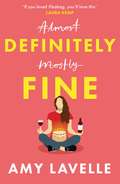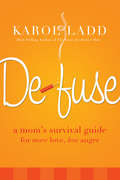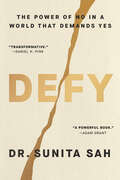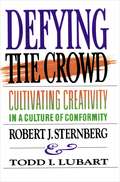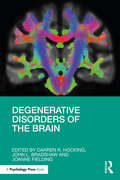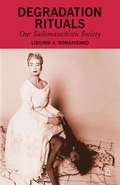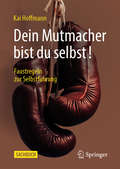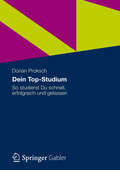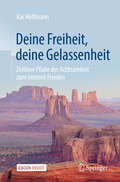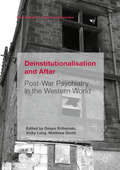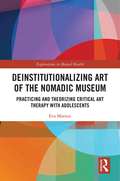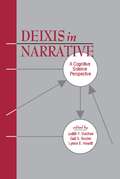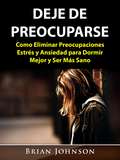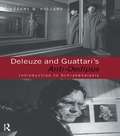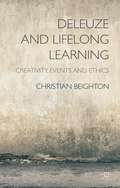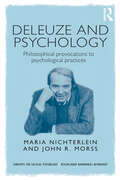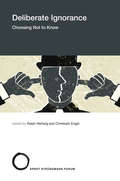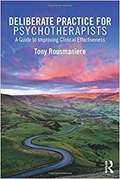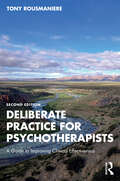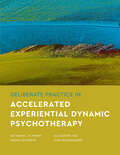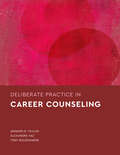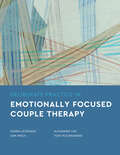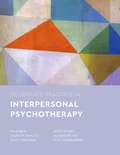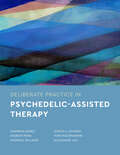- Table View
- List View
Definitely Fine
by Amy Lavelle*A COSMOPOLITAN SUMMER 2021 TOP PICK!*'If you loved Fleabag, you'll love this' LAURA KEMPHannah is twenty-eight when the worst happens. Her first instinct? To call her mum. The problem is, her mum having an accident, being rushed to hospital and never waking up was the worst thing.Realising that she is now the Woman of the Family, Hannah has to be the rock for her emotionally-repressed father and chaotic younger sister, all while trying to muddle her way through the crucial life lessons her mother never taught her, like: - How to ride a tandem- How to react when your dad starts making lasagne for an unknown woman- How to broker peace between feuding aunts- How to know if you really want a baby or if this is just the grief talking But what Hannah really wishes her mother had taught her is: when you've just lost the person who made sense of everything, how are you meant to find yourself?Hilarious, heartbreaking and completely original, Definitely Fine is a book for anyone who's ever felt lost in their own life. Perfect for fans of Dolly Alderton, Holly Bourne and Emma Straub.Readers are loving DEFINITELY FINE:'Beautifully written... I just wanted the experience to go on for longer' NetGalley Reviewer'An honest and heartbreakingly real story' NetGalley Reviewer'Truly, viscerally beautiful and one of the most true-to-life stories of recovery that I've ever read' NetGalley Reviewer'A great debut novel' NetGalley Reviewer
Defuse
by Karol LaddIn this timely survival guide, positive mom Karol Ladd offers practical steps to help mothers identify hidden anger in their own lives and in the lives of each member of their family. When tempers flare they need to know how to respond quickly to defuse the situation and to, instead, create a more loving atmosphere where anger has no place. The discussion focuses on three important steps:Recognize and Deal with Your AngerLearn How to Respond to Their AngerCreate an Enviornment Where Love AboundsWith anger being a major issue in every home, Karol's positive plan offers vital solutions that will not only deactivate anger but strengthen the bonds of love.
Defy: The Power of No in a World That Demands Yes
by Dr. Sunita SahWhy is it so hard to speak up, even when we know something&’s wrong?This is the definitive book on defiance, a clear-eyed dissection of the forces that silence us, featuring groundbreaking research and legendary stories alongside everyday examples and strategies for how to unleash the power of a &“True No.&”Many of us comply much more than we realize. How many times have you wanted to object, disagree, or opt out of something but ended up swallowing your words, shaking your head, and just going along? Analyzing cases ranging from corporate corruption and sexual abuse to everyday acquiescence at work, the doctor&’s office, and in our personal lives, award-winning organizational psychologist Dr. Sunita Sah delves deep into why the pressure to comply is a corrosive and often invisible force in our society.With her own revelatory research, she radically transforms our idea of defiance from a misunderstood negative trait into a crucial, positive force for personal and societal change. Taking us through her five stages of defiance, Dr. Sah equips readers with simple tools to make decisions that align with their values. Defy is the essential playbook for how to speak up and act when it matters most.
Defying the Crowd: Cultivating Creativity in A Culture of Conformity
by Robert J. Sternberg Todd I. LubartWorld renowned psychologist Robert Sternberg presents a fresh and compelling picture of the creative process from the inception of an idea to its ultimate success. With illuminating examples, Sternberg reveals the paths we all can take to become more creative and shows how institutions can learn to foster creativity.
Degenerative Disorders of the Brain
by John L. Bradshaw Darren R. Hocking Joanne FieldingCovering a wide range of diverse age-related disorders, Degenerative Disorders of the Brain addresses disabilities that occur or have their roots in the later stages of life. The book brings together an internationally recognised group of contributors to discuss frontostriatal, fronto-cerebellar and other major brain systems and structures which control and direct normal behaviour, and which can fail during the aging process, as well as addressing behavioural, clinical, pathophysiological and technical aspects. Discussing the latest clinical and behavioural findings of disorders which are largely, though not necessarily entirely, age related, including Alzheimer’s disease and other dementias, Parkinson’s disease and related disorders, and Huntington’s disease, the book covers information vital to the understanding, diagnosis, and management of degenerative disorders of the brain. It also considers the role of epigenetics, neural plasticity, and environmental enrichment in neurodegenerative disorders alongside the role of ground-breaking intervention methods, including transcranial magnetic stimulation and deep brain stimulation. Degenerative Disorders of the Brain will be of great interest to, and use for, clinicians, researchers, students, lecturers, and affected individuals and their relatives.
Degradation Rituals: Our Sadomasochistic Society
by Lisiunia A. RomanienkoA candid exploration of sadomasochistic practices driving contemporary culture, covering the demoralizing socioeconomic and political conditions that give rise to agonizing rituals of cruelty demonstrated at systemic, transnational, religious, familial, and even sexual spheres of human relations.
Dein Mutmacher bist du selbst!: Faustregeln zur Selbstführung
by Kai HoffmannMut ist die fundamentale Antriebskraft, damit wir im Leben das erreichen, was wir wirklich wollen. Um mutig und erfolgreich handeln zu können, benötigen wir Metaphern einer mutigen Selbsterzählung. Denn in jedem Augenblick unseres Lebens handeln wir nach Geschichten, die wir uns selbst erzählen – so der Managementberater und Coach Kai Hoffmann. Eine fundierte, klar strukturierte und spannende Anleitung für das Selbstvertrauen in die eigenen Stärken und damit in Siegerwerte wie Mut, Selbstüberwindung, Risikofreude und Entschlossenheit.
Dein Top-Studium
by Dorian ProkschStudierende aller Fachrichtungen stehen heute unter hohem Leistungsdruck: Die Umstellung auf Bachelor und Master und der Wettbewerbsdruck auf dem Arbeitsmarkt erfordern neben mehr Prüfungen, Fremdsprachen und Berufspraktika auch einen Abschluss mit Bestnoten in der Regelstudienzeit. Dein Top-Studium zeigt, wie Studierende ihr Studium schnell und erfolgreich meistern und es auch schon auf die Zukunft danach ausrichten, wann sich ein Master-Studium lohnt, wie man parallel sogar ein Unternehmen gründen kann oder das Studentenleben einfach nur genießt und trotzdem gute Noten schreibt. Die alltagstauglichen Tipps und Anregungen helfen, die selbst gesetzten Ziele tatsächlich zu erreichen - mit vertretbarem Aufwand. Wer sich darauf einlässt, wird merken: Es ist viel leichter, als gedacht.
Deine Freiheit, deine Gelassenheit: Zeitlose Pfade der Achtsamkeit zum inneren Frieden
by Kai HoffmannErfahren Sie in diesem Buch mehr über erfolgreiches Achtsamkeits- und GelassenheitstrainingIn diesem Buch über Achtsamkeitstraining macht Autor Kai Hoffmann Mut dazu, die Behaglichkeit der vertrauten Komfortzone dorthin zu verlassen, wohin der eigene Werte-Kompass weist – nämlich zum persönlichen Weg zu Gelassenheit und innerem Frieden. Hierzu bedient er sich:a) praxisorientierter Philosophieb) einer kraftvollen und bildhaften SpracheSie lernen in „Deine Freiheit, deine Gelassenheit“ Schritt für Schritt, wie Sie gedanklich im Hier und Jetzt bleiben und all Ihre vorhandenen Ressourcen aktivieren.Viele nützliche Hilfestellungen und InspirationenUm zu veranschaulichen, wie Sie im turbulenten Alltag Schritt für Schritt zu innerer Ruhe und zu innerem Frieden finden, zieht Kai Hoffmann in seinem Buch über Achtsamkeitstraining neben bewährten psychologischen Praktiken der Selbstklärung ebenfalls relevante Welt- und Lebensanschauungen einiger ausgewählter Philosophien heran. Das Werk richtet sich an alle, die ihr Leben gelassener und achtsamer leben wollen sowie an Führungskräfte, die auch in stressigen Situationen ihre innere Balance bewahren möchten. (155)
Deinstitutionalisation and After
by Matthew Smith Vicky Long Despo KritsotakiThe book relates the history of post-war psychiatry, focusing on deinstitutionalisation, namely the shift from asylum to community in the second part of the twentieth century. After the Second World War, psychiatry and mental health care were reshaped by deinstitutionalisation. But what exactly was involved in this process? What were the origins of deinstitutionalisation and what did it mean to those who experienced it? What were the ramifications, both positive and negative, of such a fundamental shift in psychiatric care? Post-War Psychiatry in the Western World: Deinstitutionalisation and After seeks to answer these questions by exploring this momentous change in mental health care from 1945 to the present in a wide range of geographical settings. The book articulates a nuanced account of the history of deinstitutionalisation, highlighting the constraints and inconsistencies inherent in treating the mentally ill outside of the asylum, while seeking to inform current debates about how to help the most vulnerable members of society.
Deinstitutionalizing Art of the Nomadic Museum: Practicing And Theorizing Critical Art Therapy With Adolescents (Explorations in Mental Health)
by Eva MarxenDeinstitutionalizing Art of the Nomadic Museum explores the possibility of the "nomadic museum" to facilitate social and political resistance through engagement with critical art practices and imagery. Grounded in a decade-long art therapy project in a contemporary art museum setting, this book offers a theoretically rich conceptualization of this experience. The text establishes an institutional critique of both the dominant psychopathology discourse and the instrumentalizations of art practices. Innovative in its approach, the results are analyzed in the framework of subjects such as hegemony-subalternity, subjectivity, resistance, the nomadic, critical art practices, narratives and minor language, deinstitutionalization, anti-psychiatries as well as institutional therapy. With a special focus on Latin America, international artists’ writings and works are intersected with the thoughts of curators and museum decision makers. The inevitable connection of the arts with social and political fields is highlighted, enabling the exploration of the intersections of art, critical analysis, social science, psychoanalysis, and political philosophy. This text will be of great interest to graduate and postgraduate students, academics, researchers, libraries and museums curators in the fields of art therapy, psychoanalysis, contemporary art, social & cultural anthropology, and political philosophy.
Deixe de se Perocupar: Como Eliminar Preocupações, Ansiedades e Ser uma Pessoa Mais Saudável
by Vera Mónica Mendes MonteiroUm guia completo para compreender e eliminar a ansiedade, stress, preocupação, medo e pânico. Este guia irá ajudá-lo a eliminar e lidar com preocupações, stress e ansiedade. - Pare as Preocupações - Trave o Stress - Pare a Ansiedade - Métodos Naturais - Sem Medicação - Durma Melhor - Seja Mais Saudável - Seja Mais Feliz - Viva Uma Vida ;elhor --> Deslize para o topo da página e clique "Adicionar ao Carro de Compras Para Obter Instantaneamente" Aviso Legal: Este autor ou dono de direitos de autor, não faz reivindacações, promessas ou garantias acerca da exactidão, totalidade, ou adequação dos conteúdos deste livro, e descarga expressamente a responsabilidade por erros e omissões nos conteúdos. Este produto serve como referência de uso apenas.
Deixis in Narrative: A Cognitive Science Perspective
by Judith F. Duchan Gail A. Bruder Lynne E. HewittThis volume describes the theoretical and empirical results of a seven year collaborative effort of cognitive scientists to develop a computational model for narrative understanding. Disciplines represented include artificial intelligence, cognitive psychology, communicative disorders, education, English, geography, linguistics, and philosophy. The book argues for an organized representational system -- a Deictic Center (DC) -- which is constructed by readers from language in a text combined with their world knowledge. As readers approach a new text they need to gather and maintain information about who the participants are and where and when the events take place. This information plays a central role in understanding the narrative. The editors claim that readers maintain this information without explicit textual reminders by including it in their mental model of the story world. Because of the centrality of the temporal, spatial, and character information in narratives, they developed their notion of a DC as a crucial part of the reader's mental model of the narrative. The events that carry the temporal and spatial core of the narrative are linguistically and conceptually constrained according to certain principles that can be relatively well defined. A narrative obviously unfolds one word, or one sentence, at a time. This volume suggests that cognitively a narrative usually unfolds one place and time at a time. This spatio-temporal location functions as part of the DC of the narrative. It is the "here" and "now" of the reader's "mind's eye" in the world of the story. Organized into seven parts, this book describes the goal of the cognitive science project resulting in this volume, the methodological approaches taken, and the history of the collaborative effort. It provides a historical and theoretical background underlying the DC theory, including discussions of deixis in language and the nature of fiction. It goes on to outline the computational framework and how it is used to represent deixis in narrative, and details the linguistic devices implicated in the DC theory. Other subjects covered include: crosslinguistic indicators of subjectivity, psychological investigations of the use of deixis by children and adults as they process narratives, conversation, direction giving, implications for emerging literacy, and a narrator's experience in writing a short story.
Deje de Preocuparse: Como Eliminar Preocupaciones Estrés y Ansiedad para Dormir Mejor y Ser Más Sano
by Hiddenstuff EntertainmentLa guía completa para entender y eliminar ansiedad, estrés, preocupaciones, miedo y pánico. Esta guía lo ayudara a eliminar y lidiar con sus Preocupaciones, Estrés y Ansiedad. •Detenga las Preocupaciones •Detenga el Estrés •Detenga la Ansiedad •Métodos Naturales •Sin Medicamentos •Duerma Mejor •Sea Más Sano •Sea Más Feliz •Viva una Vida Mejor
Deleuze and Guattari's Anti-Oedipus: Introduction to Schizoanalysis
by Eugene W. HollandEugene W. Holland provides an excellent introduction to Gilles Deleuze and Felix Guattari's Anti-Oedipus which is widely recognized as one of the most influential texts in philosophy to have appeared in the last thirty years. He lucidly presents the theoretical concerns behind Anti-Oedipus and explores with clarity the diverse influences of Marx, Freud, Nietzsche and Kant on the development of Deleuze & Guattari's thinking. He also examines the wider implications of their work in revitalizing Marxism, environmentalism, feminism and cultural studies.
Deleuze and Lifelong Learning
by Christian BeightonThis book examines Gilles Deleuze's ideas about creativity in the context of lifelong learning, offering an original take on this important contemporary topic using cinematic parallels. Discussing Deleuze's difficult notion of 'counter-actualization' as a form of creative practice, it draws practical consequences for those across a diverse sector.
Deleuze and Psychology: Philosophical Provocations to Psychological Practices (Concepts for Critical Psychology)
by Maria Nichterlein John R. MorssAn increasing number of scholars, students and practitioners of psychology are becoming intrigued by the ideas of Gilles Deleuze and of Felix Guattari. This book aims to be a critical introduction to these ideas, which have so much to offer psychology in terms of new directions as well as critique. Deleuze was one of the most prominent philosophers of the 20th century and a figure whose ideas are increasingly influential throughout the humanities and social sciences. His work, particularly his collaborations with psychoanalyst Guattari, focused on the articulation of a philosophy of difference. Rejecting mainstream continental philosophy just as much as the orthodox analytical metaphysics of the English-speaking world, Deleuze proposed a positive and passionate alternative, bursting at the seams with new concepts and new transformations. This book overviews the philosophical contribution of Deleuze including the project he developed with Guattari. It goes on to explore the application of these ideas in three major dimensions of psychology: its unit of analysis, its method and its applications to the clinic. Deleuze and Psychology will be of interest to students and scholars of psychology and those interested in continental philosophy, as well as psychological practitioners and therapists.
Deliberate Ignorance: Choosing Not to Know (Strüngmann Forum Reports #29)
by Ralph Hertwig Christoph EngelPsychologists, economists, historians, computer scientists, sociologists, philosophers, and legal scholars explore the conscious choice not to seek information.The history of intellectual thought abounds with claims that knowledge is valued and sought, yet individuals and groups often choose not to know. We call the conscious choice not to seek or use knowledge (or information) deliberate ignorance. When is this a virtue, when is it a vice, and what can be learned from formally modeling the underlying motives? On which normative grounds can it be judged? Which institutional interventions can promote or prevent it? In this book, psychologists, economists, historians, computer scientists, sociologists, philosophers, and legal scholars explore the scope of deliberate ignorance.
Deliberate Practice for Psychotherapists: A Guide to Improving Clinical Effectiveness
by Tony RousmaniereThis text explores how psychotherapists can use deliberate practice to improve their clinical effectiveness. By sourcing through decades of research on how experts in diverse fields achieve skill mastery, the author proposes it is possible for any therapist to dramatically improve their effectiveness. However, achieving expertise isn’t easy. To improve, therapists must focus on clinical challenges and reconsider century-old methods of clinical training from the ground up. This volume presents a step-by-step program to engage readers in deliberate practice to improve clinical effectiveness across the therapists’ entire career span, from beginning training for graduate students to continuing education for licensed and advanced clinicians.
Deliberate Practice for Psychotherapists: A Guide to Improving Clinical Effectiveness
by Tony RousmaniereThis book explores how psychotherapists can use deliberate practice to improve their clinical effectiveness.By sourcing through decades of research on how experts in diverse fields achieve skill mastery, this book shows it is possible for any therapist to dramatically improve their clinical skills. To improve, therapists must focus on clinical challenges and reconsider century-old methods of clinical training from the ground up. This second edition traces recent developments in research and presents a step-by-step program to engage readers in deliberate practice to improve clinical effectiveness across the therapists’ entire career span, from beginning training for graduate students, to continuing education for licensed and advanced clinicians.Enriched with insightful clinical experiences and anecdotes, Deliberate Practice for Psychotherapists is an important read for graduate students, trainees, and practicing psychotherapists.
Deliberate Practice in Accelerated Experiential Dynamic Psychotherapy (Essentials of Deliberate Practice Series)
by Tony Rousmaniere Alexandre Vaz Hanna Levenson Natasha C. PrennDeliberate practice exercises help trainees achieve competence in essential accelerated experiential dynamic psychotherapy skills and apply them in a variety of contexts while honing their own personal style. These exercises present role-playing scenarios in which two trainees act as a client and a therapist, switching back and forth under the guidance of a supervisor. The therapist improvises appropriate and authentic responses to client statements organized into three difficulty levels—beginner, intermediate, and advanced. Each of the first 12 exercises focuses on a single skill to help clients access core emotions, process past traumas, and build secure attachments. The skills include moment-to-moment tracking, validating and reframing anxieties and defenses, and initiating portrayals (i.e., speaking to an imagined other or self). Two comprehensive exercises follow in which trainees integrate these skills into a single session. Step-by-step instructions guide participants through the exercises, identify criteria for mastering the skills, and explain how to monitor and adjust difficulty. Guidelines to help trainers and trainees get the most out of training are also provided.
Deliberate Practice in Career Counseling (Essentials of Deliberate Practice Series)
by Tony Rousmaniere Alexandre Vaz Jennifer M. TaylorDeliberate practice exercises help trainees achieve competence in essential career counseling skills and apply them in a variety of contexts while honing their own personal style. These exercises present role-playing scenarios in which two trainees act as a client and a counselor, switching back and forth under the guidance of a supervisor. The counselor improvises appropriate and authentic responses to client statements organized into three difficulty levels—beginner, intermediate, and advanced. Each of the first 10 exercises focuses on a single skill, which include exploring your client's skills, values, decision-making styles, and cultural and family influences; setting goals; and providing feedback on career assessments and analyzing their underlying themes. Two comprehensive exercises follow in which trainees integrate these essential skills into a single session. Step-by-step instructions guide participants through the exercises, identify criteria for mastering the skills, and explain how to monitor and adjust difficulty. Guidelines to help trainers and trainees get the most out of training are also provided.
Deliberate Practice in Emotionally Focused Couple Therapy (Essentials of Deliberate Practice Series)
by Tony Rousmaniere Alexandre Vaz Hanna Levenson Sam JinichDeliberate practice exercises provide trainees and students an opportunity to build competence in essential emotionally focused couple therapy (EFCT) skills while developing their own personal therapeutic style. These exercises present role-playing scenarios in which two trainees act as a client and a clinician, switching back and forth under the guidance of a supervisor. The clinician improvises appropriate and authentic responses to client statements organized into three difficulty levels—beginner, intermediate, and advanced—that reflect common client questions and concerns. Each of the first 12 exercises focuses on a single skill, such as offering evocative inquiries and reflections, deepening the client&’s emotional experience of self and other, and choreographing interactions that promote positive emotional engagement. Two comprehensive exercises follow in which trainees integrate these essential skills into a single session. Step-by-step instructions guide participants through the exercises, identify criteria for mastering each skill, and explain how to monitor and adjust difficulty. Guidelines to help trainers and trainees get the most out of training are also provided.
Deliberate Practice in Interpersonal Psychotherapy (Essentials of Deliberate Practice Series)
by Tony Rousmaniere Scott Stuart Alexandre Vaz Olga Belik Jessica M. Schultz Scott FairhurstDeliberate practice exercises provide trainees and students an opportunity to build competence in essential interpersonal therapy skills while developing their own personal therapeutic style. These exercises present role-playing scenarios in which two trainees act as a client and a clinician, switching back and forth under the guidance of a supervisor. The clinician improvises appropriate and authentic responses to client statements organized into three difficulty levels—beginner, intermediate, and advanced—that reflect common client questions and concerns. Each of the first 10 exercises focuses on a single skill, including developing an interpersonal inventory of patients' relationships, building social skills, and helping patients connect with their own thoughts and emotions and empathize with others. Two comprehensive exercises follow in which trainees integrate these essential skills into a single session. Step-by-step instructions guide participants through the exercises, identify criteria for mastering each skill, and explain how to monitor and adjust difficulty. Guidelines to help trainers and trainees get the most out of training are also provided.
Deliberate Practice in Psychedelic-Assisted Therapy (Essentials of Deliberate Practice Series)
by Tony Rousmaniere Shannon Dames Alexandre Vaz Andrew Penn Monnica Williams Joseph ZamariaDeliberate practice exercises help trainees learn and apply psychedelic-assisted psychotherapy skills while honing their own personalized approach.
